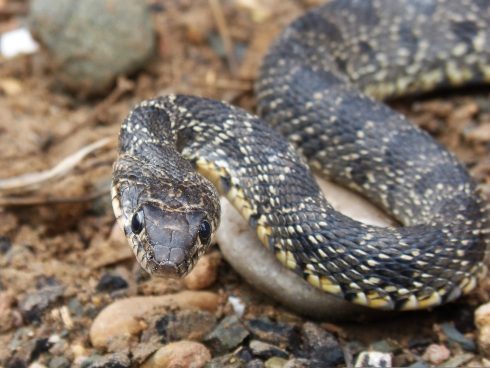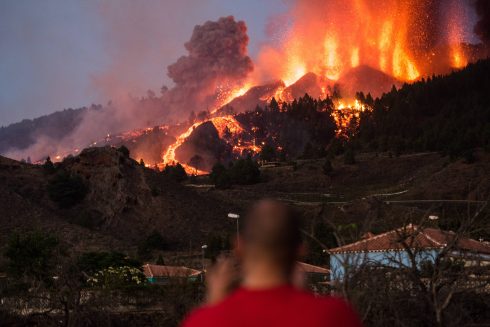Following last issue in which Fiona Flores Watson attacked the slick, corporate image of the Climate Project, after meeting him in Nashville this year, Rosie Sinclair has quite a different view of Nobel Laureate Al Gore
“ALL these years, it seemed like no-one was willing to listen. I kept thinking that, just like in the old westerns, the cavalry would be bound to come over the mountains. But it didn’t,” Al Gore told 200 Climate Change delegates during our first evening with him. “But now you are here, the cavalry, and I thank you.”
I had never imagined that my attending a course could mean so much to the man who initiated it.
To Al Gore, Nobel Peace Prize winner and former Vice President of the USA, each of us would be a vital cog in the big wheel of communication he had set up.
A simple but effective strategy.
Time magazine refers to us as his ‘foot soldiers’ – the people who will take the Global Warming message to their local communities, create debate and encourage action.
Since presentations began in June 2006, these ‘foot soldiers’ have carried out thousands of presentations and raised the global profile of this issue.
Commitment
To describe my two-and-a-half-day course in Nashville as intensive would be an understatement. Breakfast at 7.00 am, lectures from 8.00 until 5.30 pm. There were short breaks and attendance was required at all meals and evening events in order to network.
The pace was not a problem, Al Gore’s energy, and the commitment of his team, kept us thirsty for information.
Question sheets submitted to the scientists and other experts were several centimetres thick; the answers were still coming to us weeks later via the internet.
Theclimateproject.org website is the key to co-ordinating a team of over 1,000 presenters. Most are US-based but the rest of us are spread across continents – in Europe, Australia and Central and South America.
All of us have committed to volunteering our presentation skills to the project.
Politically, however, the world is now moving into the stage of “why should I, if you won’t.” There is procrastination about what to do and who will go through the door first.
From Brazil, the ball has been batted back to us. Why should they take all the dissension for deforestation of the Amazon, when we, too, are contributing to climate change?
Then there is the developed world versus India and China. Why should we, in the west, cut back on our carbon emissions when they are spewing out tonnes of carbon from their factories and power plants run on coal from China’s vast range of coal mines?
It is all a game of statistics, and making them work for whoever is arguing. The United Kingdom, for example, might wear a halo when looking at ‘per country’ ratings. But the halo passes to China when considering the ‘per capita’ rating.
Meanwhile, the clock keeps ticking and politicians keep debating.
Pay back
I was heartened, during my course in Nashville, to hear that Gore and his team have worked hard to raise this issue above politics. “It is,” he says, “a moral issue; your job is to win hearts and minds, not to stir up political hostilities.”
The 260-slide graphic presentation tells a scary story. Global warming is happening, it is happening now, and yes, we can fix it. And no, it cannot wait.
“It is important, though, to give a message of hope,” Al Gore told us. “To help people see that what they do will make a difference.”
Much to my delight, I have discovered, very quickly, how interested people are in the topic and their impact on the future. My new role seems to have a momentum of its own and my diary is filling, seemingly of its own accord.
My annual trip to see my parents, in East Anglia, will be filled with numerous Climate Change presentations to schools, and press coverage.
Likewise on the trip to my father-in-law in Aberdeen, together with a radio interview.
En route, we have stopped in Madrid to present to the American school and international community, and pulled into Doncaster for a business group workshop. The local Women’s Association in Cadiar, and the Cultural Association set up by Cat and team at the Alexander Music School, are also likely audiences.
I had arrived at the Climate Change course in a state of wonder at being chosen from thousands of applicants.
I left feeling awed by indisputable facts and figures, and the foresight of these people. Thanks to Climate Project sponsors, my luggage was a few kilograms heavier. I was laden with vital books, my PowerPoint presentation folder (cardboard cover and recycled paper), and my own notes and tapes of the event.
It seems that the immediate future, for me, will be my chance to pay back for all I have taken from the environment. I still have dates available for local presentations, inland, and on the coast. E-mail: climatewarning@yahoo.co.uk
Change begins at home
Energy saving light bulbs last longer and cut bills by as much as 75 per cent. Replacing just one bulb with an energy saver can reduce Carbon dioxide by 70 kilograms per year.
Controlling hot water temperatures reduces costs and carbons. Turn off the pilot light when boilers are not in use. Gas = CO2 = Global Warming.
Doing laundry in cold water saves countless energy and water heating costs.
Only buy energy efficient white goods – check the energy rating.
Ask about emission ratings when buying a new car.
Drive at no more than 90 kilometres per hour.
Walk on at least one occasion per week when you would normally have used the car.






